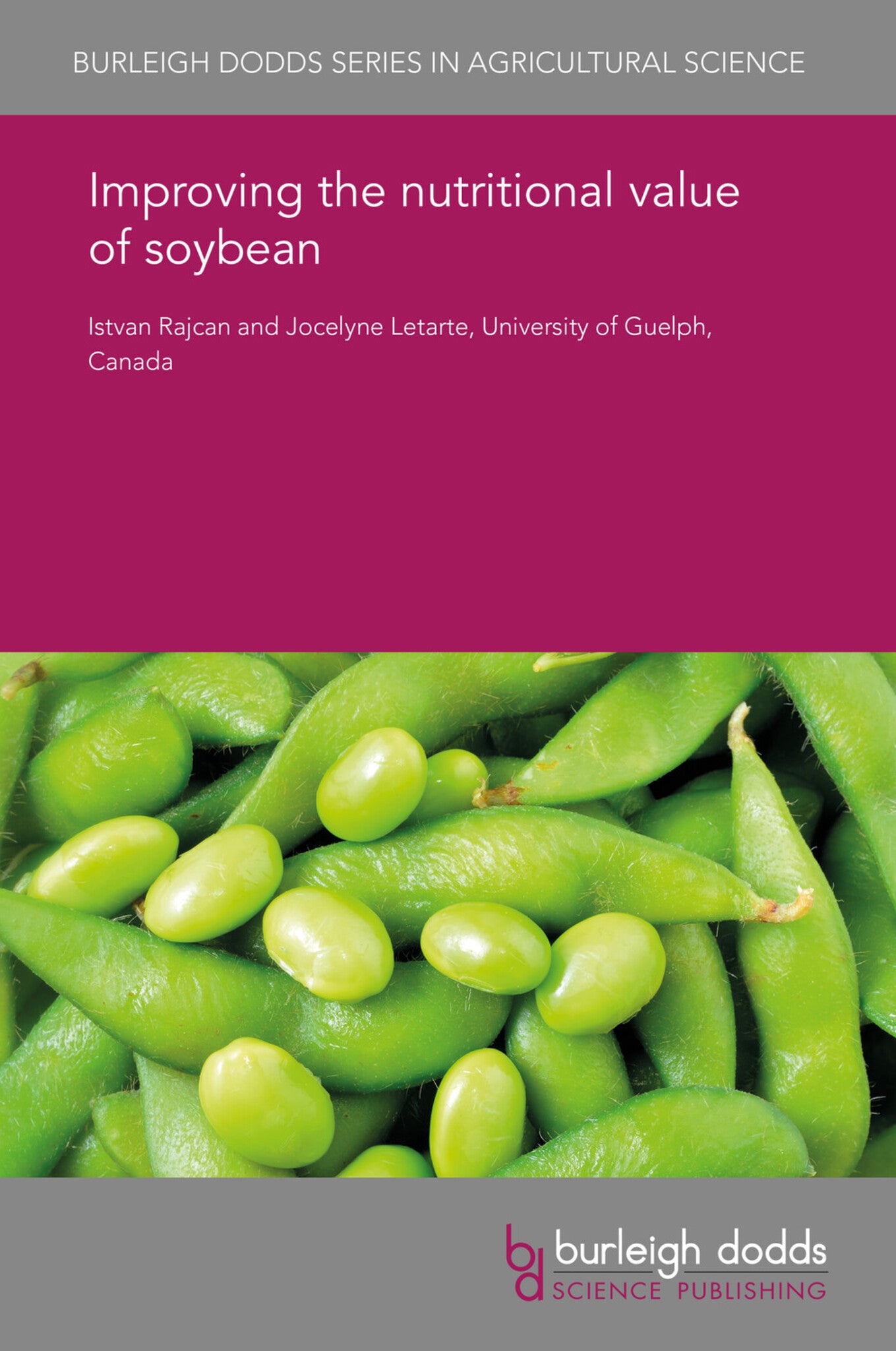We're sorry. An error has occurred
Please cancel or retry.
Improving the nutritional value of soybean
Regular price
£25.00
Sale price
£25.00
Regular price
£0.00
Unit price
/
per
Sale
Sold out
Re-stocking soon
Soybean is grown for its high oil and protein concentration and profile in the seed. Numerous studies have been carried out to determine the underlying genetics of soybean seed composition traits a...
Read More

Some error occured while loading the Quick View. Please close the Quick View and try reloading the page.
Couldn't load pickup availability
- Format:
-
12 February 2018

Soybean is grown for its high oil and protein concentration and profile in the seed. Numerous studies have been carried out to determine the underlying genetics of soybean seed composition traits and develop molecular markers that can aid in the breeding of soybean cultivars with enhanced nutritional quality. This chapter considers genetics and breeding of soybean to improve the nutritional value of the seed as the end product. The chapter describes the protein content and profile of soybean seeds before considering breeding soybean for a modified fatty acids profile that could extend soybean oil’s shelf life or address various health or nutritional issues. Finally, the chapter explores how breeding could improve the contents of tocopherols, isoflavones and saponins in soybean seeds, which are known to have important health benefits for humans.

Price: £25.00
Publisher: Burleigh Dodds Science Publishing
Imprint: Burleigh Dodds Science Publishing
Series: Burleigh Dodds Series in Agricultural Science
Publication Date:
12 February 2018
ISBN: 9781838795757
Format: eBook
BISACs:
TECHNOLOGY & ENGINEERING / Agriculture / Sustainable Agriculture, Agronomy and crop production, TECHNOLOGY & ENGINEERING / Agriculture / Tropical Agriculture, TECHNOLOGY & ENGINEERING / Agriculture / Agronomy / General, Sustainable agriculture, Tropical agriculture

1 Introduction 2 Soybean protein content and profile 3 Soybean oil profile 4 Tocopherols 5 Isoflavones 6 Saponins 7 Future trends and conclusion 8 References



